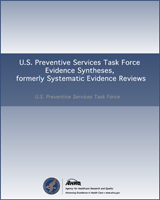| AAFP, 2016102 | Clinicians should screen all women of childbearing age for IPV, and women who screen positive for IPV should receive intervention services. |
| AAN, 2012103 | Physicians should routinely screen all patients for past and ongoing violence, fully integrating the questions into the medical history. |
| AAP, 2010104 (reaffirmed in 2014)105 | Pediatricians should remain alert to the signs and symptoms of exposure to IPV in caregivers and children and should consider attempts to identify evidence of IPV either by targeted screening of high-risk families or universal screening. |
| ACOG, 2012106,
107 | Pregnant women: Physicians should screen all women for IPV at periodic intervals, including during obstetric care (at the first prenatal visit, at least once per trimester, and at the postpartum checkup), offer ongoing support, and review available prevention and referral options.
Adolescents: All adolescents should be asked annually about a history of experiencing or witnessing abuse, including emotional, physical, and sexual abuse and assault by family members, peers, romantic partners, and others. Practitioners should be aware of State law reporting requirements and clearly disclose those laws to the patient prior to asking questions. Screening may take place through either direct interviewing or written questionnaire. |
| AWHONN, 2015108 | Opposes laws and policies that require nurses to report the results of screening for IPV to law enforcement or other regulatory agencies without the consent of the woman who experiences IPV. Women should be universally screened for IPV in private, safe settings where health care is provided. |
| IOM Committee on Preventive Services for Women, 2011109 | Recommends for consideration as a preventive service for women: screening and counseling for interpersonal and domestic violence. Screening and counseling involve elicitation of information from women and adolescents about current and past violence and abuse in a culturally sensitive and supportive manner to address current health concerns about safety and other current or future health problems. |
| CTFPHC, 2013110 | Available evidence does not justify routinely screening Canadian residents for IPV. |
| WHO, 2013111 | “Universal screening” or “routine enquiry” (i.e., asking women in all health care encounters) should not be implemented. |
